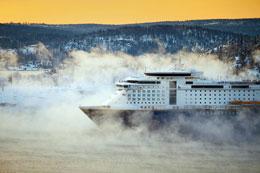Manila alerts Filipinos to cruise ship job scams

The Philippines government has issued a warning to its overseas foreign workers to be about a scam targeting applicants for employment aboard cruise ships.
The Philippine Overseas Employment Administration (POEA) said it has uncovered a recurrence of the illegal operations which are out to get money from Filipinos looking to work for a cruise ship.
The scam begins with an e-mail from the recruiter claiming to represent a major company such as Carnival Cruise Line, Royal Caribbean Cruise Line, Disney Cruise Line, MSC Cruises, P&O Cruises, etc.
The recruiter guarantees the target person a job with a cruise ship, in exchange for paying a fee upfront. When the victim pays, the scammer – and the supposed job – simply disappear.
One of the most important things to remember when looking for employment in a
the cruise ship is that you should never pay any fee, including recruitment and placement fees, POEA stated.
Legitimate manning agencies and cruise lines are not allowed to charge administrative fees from seafarers, the agency said.
According to POEA, cruise ship job scams tend to have the following features:
• Jobs are advertised on free websites and social media. Scammers would not
pay advertisement for jobs that do not exist
• Emails are sent from free email accounts such as Yahoo and Gmail.
• The correspondence is in poor English and very informal
• Scammers operate from countries such as Malaysia, Ghana, Nigeria, etc.
• The job offers are usually very generous (high salaries, short working hours, long paid holidays, etc.)
• No thorough interviews with candidates
• The job offer is for free but asks payment for visa, training, or lawyer fee
• Payment is through MoneyGram or Western Union
“Getting a job on a cruise ship is not an easy process. If it sounds too good to be true,
it most likely isn't true!” said the POEA.
Thousands of Filipinos working overseas are currently employed at international passenger vessels, as well as in cargo and other shipping lines.
Many work as part of the crew, as well as front office, accommodation and food, and beverage teams.
From January to September 2017, more than 1.2 million overseas Filipino workers (OFWs) were deployed. Most of the overseas workers are land-based, while more than 200,000 of them are sea-based workers









